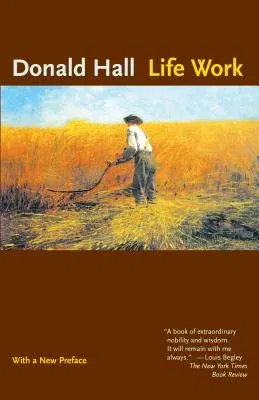Donald Hall
(Author)Life WorkPaperback, 15 April 2003

Qty
1
Turbo
Ships in 2 - 3 days
Only 2 left
Free Delivery
Cash on Delivery
15 Days
Free Returns
Secure Checkout

Print Length
136 pages
Language
English
Publisher
Beacon Press
Date Published
15 Apr 2003
ISBN-10
0807071331
ISBN-13
9780807071335
Description
Product Details
Author:
Book Format:
Paperback
Country of Origin:
US
Date Published:
15 April 2003
Dimensions:
21.84 x
14.02 x
1.14 cm
ISBN-10:
0807071331
ISBN-13:
9780807071335
Language:
English
Location:
Boston, MA
Pages:
136
Publisher:
Weight:
176.9 gm